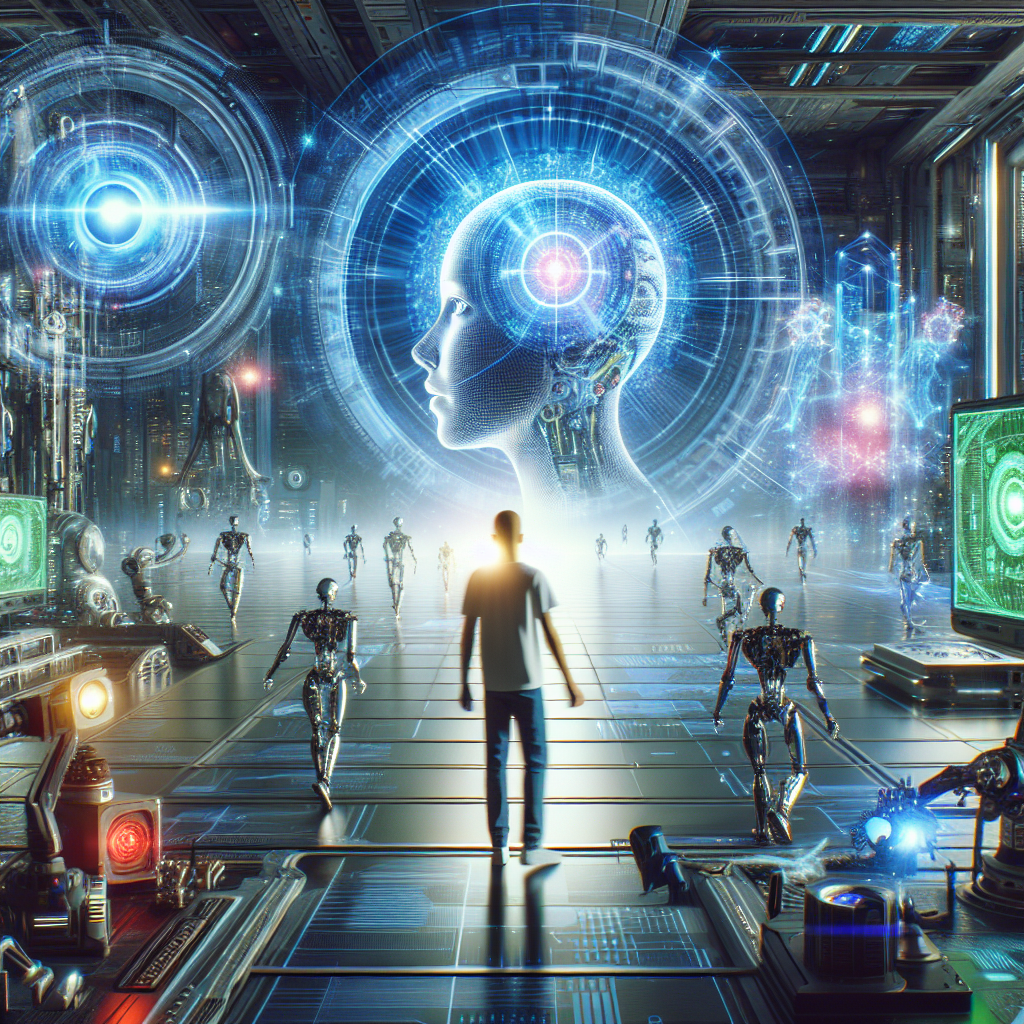Exploring the Possibilities of AGI: What the Future Holds for Artificial Intelligence
Artificial General Intelligence (AGI) is a term that refers to the development of machines that can perform any intellectual task that a human can. While current artificial intelligence (AI) systems are highly specialized and can excel at specific tasks, such as playing chess or recognizing faces, AGI aims to create machines that can think, reason, and learn in a general sense.
The idea of AGI has been a long-standing goal in the field of AI research, with many experts believing that the development of such systems could revolutionize the way we live and work. From self-driving cars to personalized healthcare, the possibilities of AGI are endless. In this article, we will explore the current state of AGI research, the challenges that lie ahead, and what the future holds for artificial intelligence.
The Current State of AGI Research
While AGI remains a lofty goal, significant progress has been made in recent years towards developing more general AI systems. One of the key advancements in this area has been the development of machine learning algorithms that can learn from large amounts of data and improve their performance over time. This has led to breakthroughs in areas such as natural language processing, computer vision, and robotics.
Another important development in AGI research is the rise of neural networks, a type of machine learning algorithm that is inspired by the structure of the human brain. Neural networks have been used to create AI systems that can recognize patterns in data, make predictions, and even generate new content, such as images and text.
Despite these advancements, however, researchers still face many challenges in developing AGI systems. One of the biggest hurdles is the lack of a unified theory of intelligence that can guide the development of more general AI systems. While researchers have made progress in understanding how individual components of intelligence, such as perception and reasoning, work, there is still much to learn about how these components interact to produce intelligent behavior.
Another challenge is the issue of scalability. While current AI systems can excel at specific tasks, they often struggle when faced with new or unfamiliar situations. Developing AI systems that can generalize their knowledge and adapt to new environments remains a major challenge in the field of AGI research.
The Future of Artificial Intelligence
Despite these challenges, many experts believe that the development of AGI systems is not only possible but inevitable. As technology continues to advance at a rapid pace, the possibilities for artificial intelligence are expanding. From autonomous vehicles to personalized healthcare, the potential applications of AGI are vast.
One area where AGI could have a significant impact is in the field of healthcare. AI systems have already been used to analyze medical images, diagnose diseases, and even assist in surgery. With the development of more general AI systems, researchers believe that AI could revolutionize the way we diagnose and treat diseases, leading to more accurate and personalized healthcare.
Another area where AGI could have a major impact is in the field of transportation. Self-driving cars are already a reality, but with the development of more general AI systems, researchers believe that autonomous vehicles could become even more sophisticated and reliable. This could lead to safer roads, reduced traffic congestion, and a more efficient transportation system.
In the field of education, AGI could revolutionize the way we learn and teach. AI systems could be used to create personalized learning experiences for students, adapting to their individual needs and learning styles. This could help students learn more effectively and efficiently, leading to better educational outcomes.
FAQs
Q: What is the difference between AGI and narrow AI?
A: Narrow AI refers to AI systems that are designed to perform specific tasks, such as playing chess or recognizing faces. AGI, on the other hand, refers to AI systems that can perform any intellectual task that a human can.
Q: How close are we to achieving AGI?
A: While significant progress has been made in recent years towards developing more general AI systems, researchers still face many challenges in achieving AGI. It is difficult to predict when AGI will be achieved, but many experts believe that it is only a matter of time.
Q: What are the potential risks of AGI?
A: While AGI has the potential to revolutionize the way we live and work, it also raises concerns about the ethical and societal implications of such powerful technology. Some experts worry that AGI could be misused or lead to unintended consequences, such as job displacement or loss of privacy.
In conclusion, the future of artificial intelligence is bright, with the development of more general AI systems on the horizon. While challenges remain in achieving AGI, researchers are making significant progress towards developing AI systems that can think, reason, and learn in a general sense. From healthcare to transportation to education, the possibilities of AGI are endless, and the impact of this technology on society could be profound. As we continue to explore the possibilities of AGI, it is important to consider the ethical and societal implications of such powerful technology and to work towards ensuring that AI benefits all of humanity.

